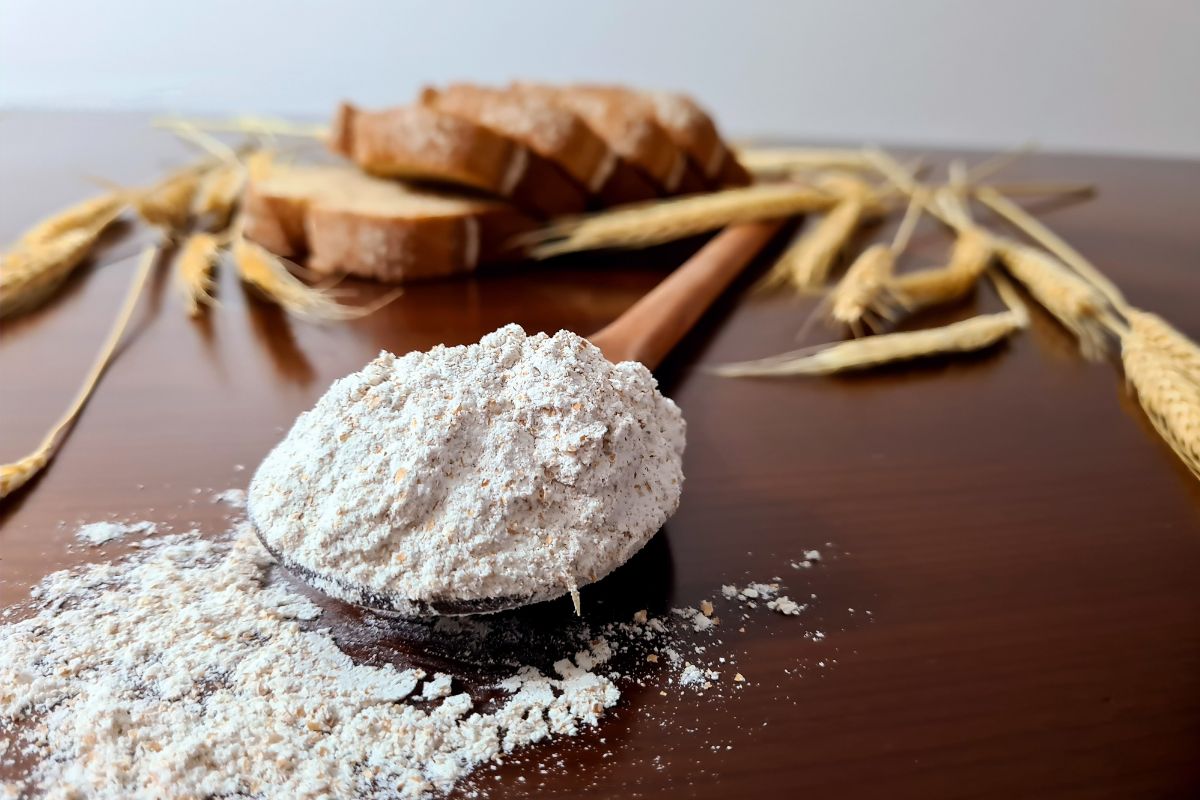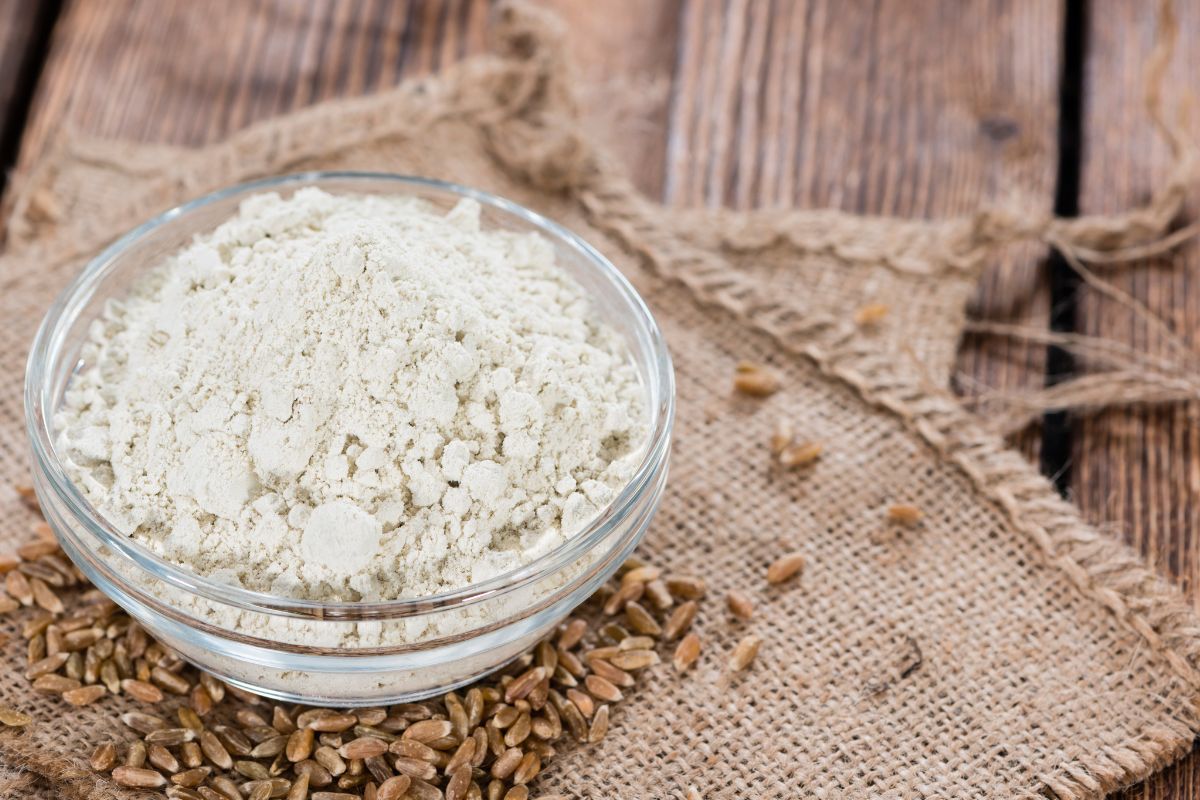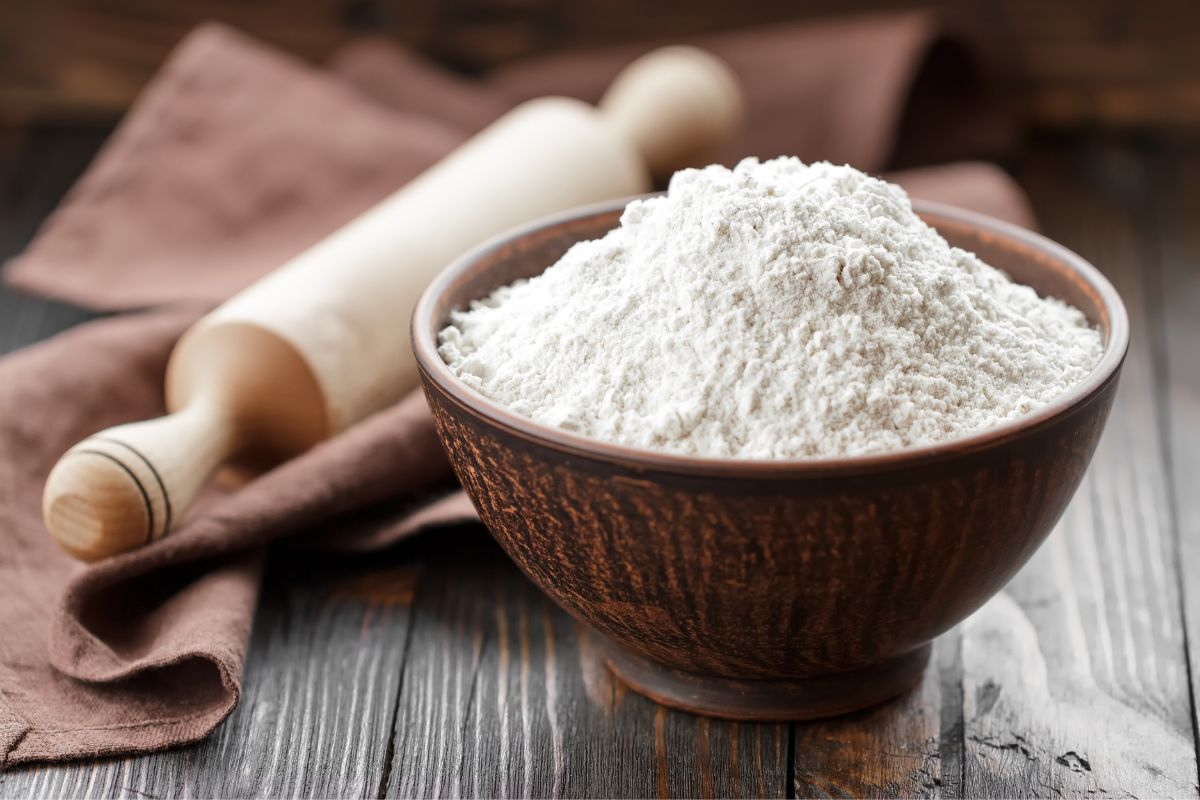How often, at the moment of baking inspiration, one discovers the only flour on the shelf is rye and has no idea what to choose as a rye flour substitute?
Luckily, today’s market has a crazy amount of substitutes that are sometimes better than the original rye flour.
In this article, one may find the perfect flour to experiment with in the kitchen next time. Or at least learn more about baking in general.
What is Rye Flour?
Rye is one of the popular flours today, along with wheat. The production of rye flour involves several stages of milling for different recipes and textures.
There are three most popular variations of rye flour: light (patent flour), medium (straight grade), and dark (clear flour).
Due to the high tolerance to harsh colds, most rye grows in Eastern Europe. In combination with wheat flour, rye flour is a common ingredient in bread and alcohol recipes.

What is it Used for?
Rye flour has a wide range of uses. Most often, rye is a popular ingredient of bread in several European countries where it grows – Ukraine, Poland, and Germany.
The most popular pastry includes soft bread and crispbread, using the classic straight dough or sourdough techniques.
The bread culture is very rich in Eastern Europe, with bread being the main addition to hot dishes like soups, Ukrainian borsch, or Polish zurek (sometimes served in a bread bowl). In Germany, some soup recipes include bread. Wheat bread is also present, but it is not much of a substitute for rye bread in this region.
Rye flour is also common in sauces, custard powder, or even pancake flour. If one looks up the ingredients on a pancake flour box next grocery shopping, the chances are they will see rye flour.
In France, people like adding rye flour to a gingerbread mixture. As for the U.S., rye flour is often a part of biscuit or crackers recipes, along with wheat flour.
Not only meal recipes include rye flour. Like any other type of grain, rye is great for making different drinks.
Kvas is a popular drink in Northeastern and Eastern Europe that includes rye flour or rye bread as the main ingredients. Kvas is a fragrant cold summer drink with a mixture of fruits, berries, herbs, and honey. However, it is slightly alcoholic and may not suit kids.
Some moonshine recipes include rye flour paste. However, it requires some distillation skills to make it at home.
Stepping outside the food zone, the properties of rye flour make it great for homemade glue. One of the recipes online recommends 3 tablespoons of rye flour with 500 ml of purified water. Rye glue does a good job attaching wallpaper or gluing paper products.
Overall, rye flour has multiple uses and is definitely not underrated.
Rye Flour vs. Wheat Flour – The Difference
Wheat flour is a regular counterpart of rye flour in most recipes. Because wheat flour is more affordable, its proportion is always bigger than rye. The two types also share notable differences. Let’s take a look at all of them.
- Nutritional Value
Wheat and rye flour share differences when it comes to their nutritional value. Rye has higher fiber content (22.6 g/100g) than wheat (12.2 g/100g). Notably, this is a difference between whole grain flour. For greater contrast, refined wheat flour has even less fiber content – only 2.7 g/100 g.
Furthermore, the fiber in rye flour is different. It is mucilaginous, or emollient, and stomachic. This way, rye fiber has special medicinal properties. In contrast, wheat fiber is very laxative. If consumed in excess, wheat can cause intestinal irritation.
Rye flour also has more minerals compared to wheat flour. Some minerals include potassium, zinc, iron, phosphorus, magnesium, pantothenic, and folic acid. Rye flour is richer than most flours, not just wheat.
The main health benefit of rye flour and grain is blood regeneration and improved elasticity of blood vessels.
On the other hand, wheat flour is richer in selenium – a powerful antioxidant and immunity booster.
- Flavors
Rye and wheat flours have their distinct flavors. Sour bread is a product of rye flour due to the enzymes that accelerate fermentation.
So, if the recipe uses mostly rye flour (40%-50%), one will get nice sour bread.
- Textures
Rye flour has less gluten compared to wheat flour. This is why goods made of rye flour do not rise the same way as those made of wheat flour.
For the same reason, rye dough feels different when one is baking with rye flour. Wheat dough is easier to knead, and the rye dough is stickier, making the work a little messy.
One can put oil on their hands before kneading to prevent rye dough from sticking to their fingers.
- Shelf Lives
Rye bread has a significantly longer shelf life when compared to wheat bread. The reason for that is the special feature of rye flour: it does not dry out for longer periods.
Pentosans – special starches that rye flour contains – helps it absorb several times its weight and harden the same way as other types of flour, including wheat. This way, rye bread can stay edible for longer periods.
What are Suitable Alternatives for Rye Flour?
Luckily, there are numerous alternatives if one needs a rye flour substitute.
- Amaranth Flour
Amaranth flour is a great gluten-free rye flour substitute. Not only is it suitable for people with gluten intolerance, but it also has more protein, which makes the meal healthier.
Also, amaranth flour has a similar texture to rye flour, so kneading the dough will not be a stressful experience.
- Barley Flour
The reason why barley flour is a good rye flour substitute is the similar nutty and sweet aftertaste. This way, the meal’s taste will not differ significantly from the original recipe.
Barley flour is also rich in nutritious fats, so making pastry out of it would be a good idea.
Unfortunately, barley flour has gluten, making it unsuitable for people with gluten intolerance.
- Buckwheat Flour
Buckwheat flour is similar to rye flour in many ways. First, it has a similar bitterness and nutty taste. Second, the nutritional value of both is very much alike.
It is also gluten-free, which is an extra bonus.
The only disadvantage is that buckwheat does not work in bread recipes – the buckwheat dough does not rise.

- Chia Flour
Chia flour must be the healthiest substitute for rye flour in the top three. It is perfect for making bread, cakes, muffins, and other stuff.
Not to mention, it is gluten-free rye flour. Plus, chia flour has a pleasant gummy texture that may appeal to some people.
- Corn Flour
Unlike other alternatives mentioned, corn flour is not a strong contestant. It does not have many nutrients and is also high in calories. However, if you have nothing else on the store shelves, you can still try corn flour.
Corn flour is gluten-free, so if there are other more nutrient but gluten options, corn flour is a good rye flour substitute.

- Oat Flour
Oat flour is one of the ideal substitutes for rye flour. Their nutritional values are almost identical, so it is a perfect option for baking.
Once again, the only disadvantage is gluten. So one has to be careful and not forget about it.
- Rice Flour
Rice flour has been a popular gluten-free rye flour substitute for a long time. It is a good thickening element in batters and baked stuff.
Brown rice flour is the closest to rye flour, with a similar earthy fragrance. It is better, however, to mix rice flour with other gluten-free flour to absorb unnecessary liquid and prevent crumbling.
- Spelt Flour
Spelt flour is rich in nutrients and is thus a good substitute for rye flour. Not only do both options have lots of fiber, but they also have gluten. One should remember it when baking with spelt flour.

- Triticale Flour
Triticale flour is a hybrid grain of wheat and rye. Taking the best from both worlds, triticale flour is perfect for baking bread, cakes, cookies, etc.
However, it has a more distinct nutty taste than rye flour, so one should consider it before cooking.
- Wheat Flour
Finally, the most obvious rye flour substitute one can think of. Wheat flour contains bran – hard outer layers of cereal grain – which makes both flours similar in texture.
Wheat flour also has gluten, but it is not news. After all, wheat flour is the most popular out of all options here.
Is Rye Flour Gluten-Free?
Rye flour is very much not gluten-free. Rye contains a gluten protein secalin, unique for this type of flour. There is much less gluten in rye flour compared to wheat flour.
Still, rye flour is not a good option for those with gluten intolerance. Luckily, the list of great substitutes is here to use.
Can You Use All-Purpose Flour Instead of Rye Flour?
All-purpose flour is a medium-gluten white flour suitable for all kinds of baking. White rye flour has higher protein and fiber than all-purpose flour and has different gluten properties.
Higher gluten gives a softer texture to the final meal, unlike all-purpose flour. The latter does not have enough properties to provide the same quality to the product.
To sum up, all-purpose flour can’t substitute rye flour.

Final Words
Rye flour turns out to be quite replaceable in the end. By choosing one of the ten options above, one can be sure their pastry or dessert will turn out delicious and flavorful. Experimenting is always welcomed.

Community of passionate writers and content creators who share a love for Italian heritage, culture, travel, food, and the Italian-American community. Our mission is to celebrate Italy’s rich history and traditions and connect with others who share the same passion.

